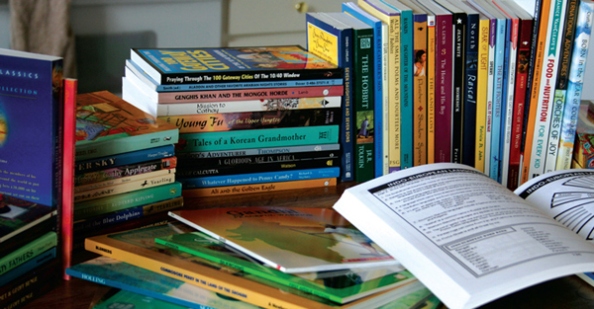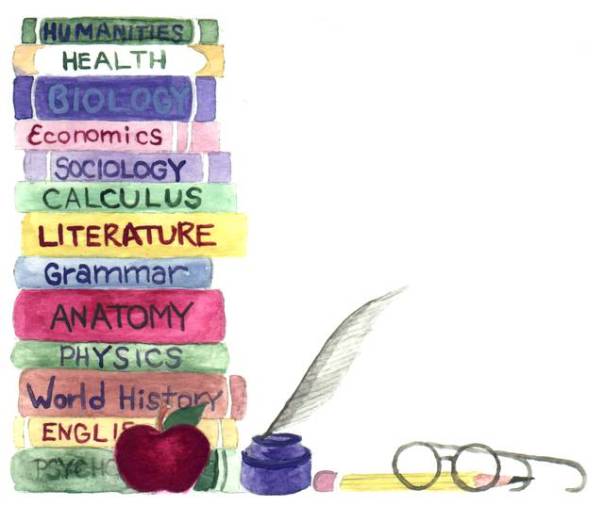
By Heather Walton
January is traditionally a time of new beginnings, new resolutions, and for many, new vision. However, in the academic world, it’s not the beginning of the year, but rather the half-way point. Whether you approach this time of year as the beginning or the middle, it is an excellent time for reflection, assessment, and realignment.
Perhaps you aren’t as enthusiastic about your homeschool goals, curriculum, or routine as you were in August. Maybe you don’t homeschool at all … yet. Or, if you’re like me, you generally take this time of year to consider which things you’ve been doing you want to continue and which you’d like to change.
For example, in reflecting on my homeschool year, there are parts that I believe have gone very well, such as converting from some workbook-type activities to almost 100 percent reading real books and requiring narrations in all subjects (except math, though that may be coming). Another thing I am satisfied with is our “together time,” in which we sing a hymn or two, read Scripture, read classic literature, and do picture study.
However, I feel we could do better in a few areas. For instance, I have not incorporated composer study well into our “together time,” and I need to do a better job of keeping our environment tidy. As a result, I have developed a plan for the children and me to tidy as we go, attending to a few problem areas and regular chores at various times throughout the day. After all, education isn’t just about academics; if my children can’t keep an orderly house or understand that they need to contribute to the home, they won’t be prepared for life.
I am a homeschooling mom, but I don’t only homeschool my own children. I have two additional full-time students and one part-time student. As an educator by profession, I have been called to teach. I know not everyone who would like to homeschool is able to do so, so I enjoy being able to partner with families to educate their children according to a Biblical worldview. If you find yourself needing a full-time homeschool solution, I would be glad to discuss that with you.
If, on the other hand, you would simply like your middle or high school age student to meet with other students a couple mornings per week to discuss real books and do some hands-on learning in a group setting, check out New Day Academy, a cottage school program I’m starting Jan. 14. This program features Charlotte Mason philosophy and a Biblical Worldview. Students will have assigned readings from living books, and they will complete written narrations. We will meet on Tuesday and Thursday meetings for discussion and activities. Students may attend Tuesday or Thursday or both. The days compliment each other while being independent of one another. If you are interested in joining New Day Academy’s cottage program this school year, please let me know by Jan. 6. Those who enroll this year will have first option to enroll again in the fall.
January may be a great time for you and your family to make an educational change that will breathe energy into your homeschool and into your home.
For more information, contact Heather Walton, 502-438-4680, heatherpwalton@gmail.com, or complete the form below.
 EDUCA’TION, noun [Latin educatio.] The bringing up, as of a child, instruction; formation of manners. education comprehends all that series of instruction and discipline which is intended to enlighten the understanding, correct the temper, and form the manners and habits of youth, and fit them for usefulness in their future stations. To give children a good education in manners, arts and science, is important; to give them a religious education is indispensable; and an immense responsibility rests on parents and guardians who neglect these duties. (
EDUCA’TION, noun [Latin educatio.] The bringing up, as of a child, instruction; formation of manners. education comprehends all that series of instruction and discipline which is intended to enlighten the understanding, correct the temper, and form the manners and habits of youth, and fit them for usefulness in their future stations. To give children a good education in manners, arts and science, is important; to give them a religious education is indispensable; and an immense responsibility rests on parents and guardians who neglect these duties. (
 By Heather Walton
By Heather Walton
 Homeschooling is often challenging, but it doesn’t have to be complicated. Sometimes a helping hand is all you need to go from frazzled to thriving. A+ Education Solutions offers homeschool consultation/coaching services, working together with you to troubleshoot and create an individualized plan for your family. You may benefit from checking in biweekly, monthly, or just every once in awhile. You might just need a one-time consultation. Having someone to consult with can give you the boost that you need to get a solid start in homeschooling or to stay the course. Coaching takes place in person and online to accommodate your needs. Whatever your need, A+ Education Solutions is here to help. Call
Homeschooling is often challenging, but it doesn’t have to be complicated. Sometimes a helping hand is all you need to go from frazzled to thriving. A+ Education Solutions offers homeschool consultation/coaching services, working together with you to troubleshoot and create an individualized plan for your family. You may benefit from checking in biweekly, monthly, or just every once in awhile. You might just need a one-time consultation. Having someone to consult with can give you the boost that you need to get a solid start in homeschooling or to stay the course. Coaching takes place in person and online to accommodate your needs. Whatever your need, A+ Education Solutions is here to help. Call 

